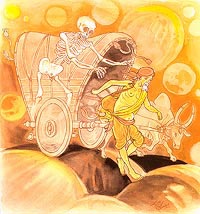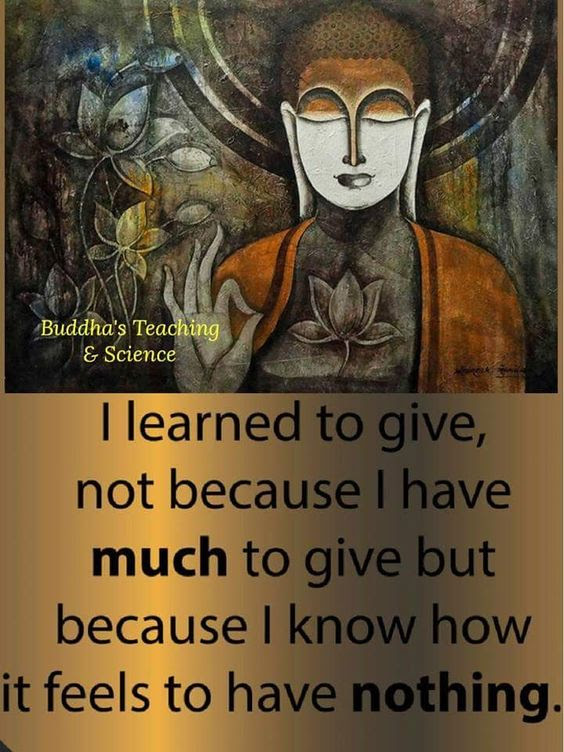29) Classical English,99) Classical Tamil-பாரம்பரிய இசைத்தமிழ் செம்மொழி,100) Classical Telugu- క్లాసికల్ తెలుగు,55) Classical Kannada- ಶಾಸ್ತ್ರೀಯ ಕನ್ನಡ,69) Classical Malayalam-ക്ലാസിക്കൽ മലയാളം,72) Classical Marathi-क्लासिकल माओरी,45) Classical Hindi- शास्त्रीय हिंदी,16) Classical Bengali-ক্লাসিক্যাল বাংলা,40) Classical Gujarati-ક્લાસિકલ ગુજરાતી,74) Classical Myanmar (Burmese)-Classical မြန်မာ (ဗမာ),75) Classical Nepali-शास्त्रीय म्यांमार (बर्मा),81) Classical Punjabi-ਕਲਾਸੀਕਲ ਪੰਜਾਬੀ, 89) Classical Sindhi,101) Classical Thai-ภาษาไทยคลาสสิก,90) Classical Sinhala-සම්භාව්ය සිංහල, 104) Classical Urdu- کلاسیکی ارد
106) Classical Vietnamese-Tiếng Việt cổ điển, 29) Classical English,99) Classical Tamil-பாரம்பரிய இசைத்தமிழ் செம்மொழி,100) Classical Telugu- క్లాసికల్ తెలుగు,55) Classical Kannada- ಶಾಸ್ತ್ರೀಯ ಕನ್ನಡ,69) Classical Malayalam-ക്ലാസിക്കൽ മലയാളം,72) Classical Marathi-क्लासिकल माओरी,45) Classical Hindi- शास्त्रीय हिंदी,16) Classical Bengali-ক্লাসিক্যাল বাংলা,40) Classical Gujarati-ક્લાસિકલ ગુજરાતી,74) Classical Myanmar (Burmese)-Classical မြန်မာ (ဗမာ),75) Classical Nepali-शास्त्रीय म्यांमार (बर्मा),81) Classical Punjabi-ਕਲਾਸੀਕਲ ਪੰਜਾਬੀ, 89) Classical Sindhi,101) Classical Thai-ภาษาไทยคลาสสิก,90) Classical Sinhala-සම්භාව්ය සිංහල, 104) Classical Urdu- کلاسیکی ارد
Do Good Be Mindful - Awakened One with Awareness (AOA)
Words of the Buddha the Awakened One with Awareness
https://www.youtube.com/watch?v=9IhbVeB2SL0
appam pi ce saṃhitaṃ bhāsamāno
dhammassa hoti anudhammacārī
rāgañ ca dosañ ca pahāya mohaṃ
sammāppajāno suvimuttacitto
anupādiyāno idha vā huraṃ vā sa
bhāgavā sāmaññassa hoti
(DhP 20)
Translation:
Even if he recites a little of
scriptures, but lives in truth according to the Dharma,
having abandoned lust, hatred and
delusion, has the right knowledge, with a well emancipated mind,
is not attached to anything,
either in this world, nor in the other one, he shares the [blessings of]
monkshood.
Sentence
Structure:
List of
Abbreviations
appam
pi ce saṃhitaṃ bhāsamāno
dhammassa hoti
anu+dhamma+cārī
|
|
|
|
|
|
|
|
| |
Adj.m. part. part.
N.m.
Adj.m.
N.m. V.act.in. Pref.
N.m. N.m.
Acc.Sg.
| |
Acc.Sg. Nom.Sg.
Gen.Sg. 3.Sg.pres.
|_____| Nom.Sg.
|
|
|
|_________|
|
|
|_________|
|_______|____|__________|
|
|_______________|
|____|
|
|_______________|
|______|
|
|____________________________________|____________________________
List of Abbreviations
rāgañ ca
dosañ ca pahāya mohaṃ sammā+ppajāno
su+vimutta+citto
|
|
|
|
|
|
|
|
|
| |
N.m. conj. N.m.
conj. V.ger. N.m.
Adv. N.m. pref. Adj.
N.m.
Acc.Sg.
| Acc.Sg.
|
| Acc.Sg.
| Nom.Sg. |_____|
Nom.Sg.
|______|
|_____|
|
|
|_______|
|_______|
|___________|_______|_______|
|
|
__________________|_____________________|_______________|__________________
List of Abbreviations
an+upādiyāno idha vā
huraṃ vā
sa bhāgavā
sāmaññassa hoti
|
|
|
|
|
|
|
|
|
|
neg.
Adj.m. Adv. conj. Adv. conj. Pron.m.
Adj.m.
N.n. V.act.in.
|
Nom.Sg. |____|
|____| Nom.Sg. Nom.Sg.
Gen.Sg. 3.Sg.pres.
|______|
|
|
|
|________|
|
|____________|_________|
|
|______________|
|
|__________________|
____________|______________________________|
Vocabulary and
Grammar:
List of
Abbreviations
appam: appa-, Adj.:
little, few. Acc.Sg.m. = appam.
pi, part.: also, as well, even
(often spelled api).
ce, part.: if.
saṃhitaṃ: saṃhita-, Adj.: connected, joined, settled. A p.p. of the verb
dhā- (put) with the prefix saṃ- (together). As a N.m. = the
Buddhist texts. Acc.Sg. = saṃhitaṃ.
bhāsamāno: bhāsamāna-, Adj.: speaking. It is a med.pr.p. of the verb
bhās- (to speak). Nom.Sg.m. = bhāsamāno.
List of Abbreviations
dhammassa: dhamma-, N.m.:
Buddha’s Teaching. The Law. Derived from the verb dha-, to hold. Thus
dhamma “holds the world together”. Gen.Sg.: dhammassa.
hoti, V.: is. The verb bhū-
(to be). 3.Sg.act.in.pres. = hoti.
anudhammacārī: anudhammacārin-, N.m.: living in truth. A compound
of:
anudhamma-, Adj.: according to the Law, in
truth. Can be further analyzed as:
anu-, Prep.: according
to, following.
dhamma-, N.m.:
Buddha’s Teaching, The Law, truth.
cārin-,
N.m.: living, acting. Derived by the suffix -in from the verb car-
(to walk, to act).
Nom.Sg. = anudhammacārī.
rāgañ: rāga-, N.m.: passion, lust. Derived from the verb raj-
(to color). Acc.Sg. = rāgaṃ. The form rāgañ is due to the
euphonic combination (rāgaṃ + ca = rāgañ ca).
List of Abbreviations
ca, conj.: and.
dosañ: dosa-, N.m.:
ill-will, hatred, anger. Acc.Sg. = dosaṃ. The form dosañ is due to
the euphonic combination (dosaṃ + ca = dosañ ca).
pahāya, V.: Having abandoned or eliminated. A ger. of the verb hā- (to
leave, to give up) with the strengthening prefix pa-.
mohaṃ: moha-, N.m.:
delusion, bewilderment. Derived from the verb muh- (to get bevildered).
Acc.Sg. = mohaṃ.
List of Abbreviations
sammāppajāno: sammāppajāna-, N.m.: having right knowledge. A compound
of:
sammā-, Adv.: properly, rightly, as it should
be, truly.
pajāna-, N.m.: knowledge, understanding.
Derived from the verb ñā-
(to know) with the
strengthening prefix pa-. More often seen as pajānanā-,
N.f.
The
duplication of the letter p is due to the euphonic combination
(sammā + pajāna = sammāppajāna).
Nom.Sg. =
sammāppajāno.
suvimuttacitto:
suvimuttacitta-, N.m.: with a well emancipated mind. A compound
of:
su-, pref.: well.
vimutta-, Adj.: emancipated, freed, released.
A p.p. of the verb muc- (to release)
with the prefix
vi- (meaning separation).
citta-,
N.n.: mind.
Nom.Sg. = suvimuttacitto.
List of Abbreviations
anupādiyāno: anupādiyāna-, Adj.: not clinging, not attached. A negated (by
the negative prefix an-) med.pr.p. of the verb upādiyati (to
cling, to be attached). This verb can be analyzed as the root dā- (to
give) with the prefix ā- (towards). Thus ādiyati means take up,
seize, grasp. Further, the prefix upa- (nearness, close touch) is also
added.
Nom.Sg.m. =
anupādiyāno.
idha, Adv.: here, in this
world.
vā, conj.: or.
huraṃ, Adv.: there, in the other
world.
List of Abbreviations
sa: tad-, Pron.n.: it.
Nom.Sg.m. = sa (the more usual form is so).
bhāgavā: bhāgavant-, Adj.m.: partaking of, having a share. The word
bhāga-, N.m.: share, with a possessive suffix vant-. Nom.Sg. =
bhāgavā.
sāmaññassa: sāmañña-, N.n.: monkshood. An abstract from samaṇa-,
N.m.: monk, recluse. Gen.Sg. = sāmaññassa.
List of Abbreviations
The first segment of
this sentence is appam pi ce saṃhitaṃ bhāsamāno (even if [he] recites a
little of scriptures). The subject of this sentence is omitted, implying a
personal pronoun (which comes in the last clause). The verb is bhāsamāno
(which is the medium present participle in nominative singular). The object is
the word saṃhitaṃ (scripture, accusative singular) with its attribute
appam (a little, accusative singular). There are two particles pi
(even) and ce (if).
The next segment is
dhammassa hoti anudhammacārī ([he] lives in truth according to the
Dharma). The subject here is again an omitted personal pronoun. The verb is
hoti (is, 3rd person, singular, active, indicative, present tense). The
object anudhammacārī (living in truth, nominative singular) has an
attribute dhammassa (of the Dharma, according to the Dharma, genitive
singular).
Third segment is
rāgañ ca dosañ ca pahāya mohaṃ. Again, the subject (personal pronoun) is
omitted. As the verb serves the gerund pahāya. There is a triple object
rāgañ, dosañ, mohaṃ (lust, hatred, delusion, respectively,
all accusative singular). They are connected by two conjunctions ca (and)
in the common way of Pali texts.
Next two segments
are just attributes to the main subject of the sentence, the personal pronoun
sa (he) in the last clause. They are sammāppajāno (having the
right knowledge, nominative singular) and suvimuttacitto (with a well
emancipated mind, nominative singular).
Next is the segment
anupādiyāno idha vā huraṃ vā (not attached to anything, either in this
world, nor in the other one). The subject is, as above the personal pronoun
coming in the final clause. The verb is anupādiyāno (not attached, active
present participle, in nominative singular). The object is double — idha
(here) and huraṃ (there), connected by two conjunctions vā (or) in
the common way of Pali texts.
Last part is the
sentence sa bhāgavā sāmaññassa hoti (he is a sharer of the monkshood).
The subject is the pronoun sa (he, nominative singular). The verb is hoti
(is, 3rd person, singular, active, indicative, present tense). The object is
the word bhāgavā (sharer, “shareholder”, nominative singular) with its
attribute sāmaññassa (of monkshood, genitive singular).
Commentary:
So, who can be truly called a monk, who
shares the blessings of monkshood? It must be a person, who is living in
accordance with the Dharma, as proclaimed by the Buddha. He must abandon all
three roots of evil (lust, hatred and delusion), must have the right knowledge
of the Dharma and his mind must be liberated. He must not of course be attached
to anything in this world, but neither to anything in his possible future
rebirths. Such a person is sharing all the blessings of monkshood, even if he
does not preach the Dharma a lot.
Sentence
pronunciation:
Word pronunciation:
appam
pi
ce
saṃhitaṃ
bhāsamāno
dhammassa
hoti
anudhammacārī
rāgañ
dosañ
pahāya
mohaṃ
sammāppajāno
suvimuttacitto
anupādiyāno
idha
vā
huraṃ
sa
bhāgavā
sāmaññassa
Appam pi ce saṃhitaṃ bhāsamāno dhammassa
hoti anudhammacārī, rāgañ ca dosañ
ca pahāya mohaṃ sammāppajāno suvimuttacitto,
anupādiyāno idha vā huraṃ vā sa
bhāgavā sāmaññassa hoti.
Translation
Even if he recites a little of scriptures, but lives in truth according
to the Dharma, having abandoned lust, hatred and delusion, has the right
knowledge, with a well emancipated mind, is not attached to anything, either
in this world, nor in the other one, he shares the [blessings of] monkshood.
(Source: of Digital Library & Museum of Buddhist studies)
https://www.youtube.com/watch?v=D-BX6d8Q2CE
Translation
to the Dharma, having abandoned lust, hatred and delusion, has the right
knowledge, with a well emancipated mind, is not attached to anything, either
in this world, nor in the other one, he shares the [blessings of] monkshood.
(Source: of Digital Library & Museum of Buddhist studies)
Dhammapada Verse 1 & The Buddha’s Story
Published on Sep 5, 2012
https://www.youtube.com/watch?v=D-BX6d8Q2CE
Dhammapada Verse 1 & The Buddha’s Story
Phra Dhammo
Published on Sep 5, 2012
Dhammapada Verse 1
For more Dhamma from Phra Dhammo please visit http://www.facebook.com/Phra.Dhammo
Cakkhupalatthera Vatthu
Suffering pursues the evil-doer, as the cart-wheel the hoof of the draught ox.
Manopubbangama dhamma
manosettha manomaya
manasa ce padutthena
bhasati va karoti va
tato nam dukkhamanveti
cakkamva vahato padam.
Mind precedes all knowables,
mind’s their chief, mind-made are they.
if with a corrupted mind
one should either speak or act
dukkha follows caused by that,
as does the wheel the ox’s hoof.
Suffering Follows The Evil-Doer
1 (1) The Story of the Monk Cakkhupàla (Verse 1)
While residing at the Jetavana Monastery in Sàvatthi, the
Buddha spoke this verse, with reference to Cakkhupàla, a
blind monk.
On one occasion, Monk Cakkhupàla came to pay hom-
age to the Buddha at the Jetavana Monastery. One night, while
pacing up and down in meditation, the monk accidentally
stepped on some insects. In the morning, some monks visiting
the monk found the dead insects. They thought ill of the monk
and reported the matter to the Buddha. The Buddha asked
them whether they had seen the monk killing the insects.
When they answered in the negative, the Buddha said, “Just as
you had not seen him killing, so also he had not seen those
living insects. Besides, as the monk had already attained ara-
hatship he could have no intention of killing, so he was inno-
cent.” On being asked why Cakkhupàla was blind although he
was an arahat, the Buddha told the following story:
Cakkhupàla was a physician in one of his past exist-
ences. Once, he had deliberately made a woman patient blind.
That woman had promised to become his slave, together with
her children, if her eyes were completely cured. Fearing that
she and her children would have to become slaves, she lied to
the physician. She told him that her eyes were getting worse
when, in fact, they were perfectly cured. The physician knew
she was deceiving him, so in revenge, he gave her another
ointment, which made her totally blind. As a result of this evil
deed the physician lost his eyesight many times in his later
existences.
Category
Film & Animation
youtube.com
Dhammapada
Verse 1 For more Dhamma from Phra Dhammo please visit
http://www.facebook.com/Phra.Dhammo Cakkhupalatthera Vatthu Suffering…

Verse 1. Suffering Follows The Evil-Doer
Mind precedes all knowables,
mind’s their chief, mind-made are they.
If with a corrupted mind
one should either speak or act
dukkha follows caused by that,
as does the wheel the ox’s hoof.
Explanation: All that we experience begins with thought. Our
words and deeds spring from thought. If we speak or act with evil
thoughts, unpleasant circumstances and experiences inevitably result.
Wherever we go, we create bad circumstances because we carry bad thoughts.
This is very much like the wheel of a cart following the hoofs of
the ox yoked to the cart. The cart-wheel, along with the heavy load
of the cart, keeps following the draught oxen. The animal is bound
to this heavy load and cannot leave it.
https://www.youtube.com/watch?v=D-BX6d8Q2CE
Dhammapada Verse 1 & The Buddha’s Story
Phra Dhammo
Published on Sep 5, 2012
Dhammapada Verse 1
For more Dhamma from Phra Dhammo please visit http://www.facebook.com/Phra.Dhammo
Cakkhupalatthera Vatthu
Suffering pursues the evil-doer, as the cart-wheel the hoof of the draught ox.
Manopubbangama dhamma
manosettha manomaya
manasa ce padutthena
bhasati va karoti va
tato nam dukkhamanveti
cakkamva vahato padam.
Mind precedes all knowables,
mind’s their chief, mind-made are they.
if with a corrupted mind
one should either speak or act
dukkha follows caused by that,
as does the wheel the ox’s hoof.
Suffering Follows The Evil-Doer
1 (1) The Story of the Monk Cakkhupàla (Verse 1)
While residing at the Jetavana Monastery in Sàvatthi, the
Buddha spoke this verse, with reference to Cakkhupàla, a
blind monk.
On one occasion, Monk Cakkhupàla came to pay hom-
age to the Buddha at the Jetavana Monastery. One night, while
pacing up and down in meditation, the monk accidentally
stepped on some insects. In the morning, some monks visiting
the monk found the dead insects. They thought ill of the monk
and reported the matter to the Buddha. The Buddha asked
them whether they had seen the monk killing the insects.
When they answered in the negative, the Buddha said, “Just as
you had not seen him killing, so also he had not seen those
living insects. Besides, as the monk had already attained ara-
hatship he could have no intention of killing, so he was inno-
cent.” On being asked why Cakkhupàla was blind although he
was an arahat, the Buddha told the following story:
Cakkhupàla was a physician in one of his past exist-
ences. Once, he had deliberately made a woman patient blind.
That woman had promised to become his slave, together with
her children, if her eyes were completely cured. Fearing that
she and her children would have to become slaves, she lied to
the physician. She told him that her eyes were getting worse
when, in fact, they were perfectly cured. The physician knew
she was deceiving him, so in revenge, he gave her another
ointment, which made her totally blind. As a result of this evil
deed the physician lost his eyesight many times in his later
existences.
Category
Film & Animation
Verse 1 For more Dhamma from Phra Dhammo please visit
http://www.facebook.com/Phra.Dhammo Cakkhupalatthera Vatthu Suffering…
 |
Verse 1. Suffering Follows The Evil-Doer
Explanation: All that we experience begins with thought. Our |

“Mind precedes all mental states, mind is their chief, they are all mind-wrought.
If a person speaks or acts with an impure mind,
Suffering follows him like the wheel follows the foot of the ox.”
2. This is the 154th verse of the Dhammapada.
https://in.pinterest.com/pin/521362094360634775/

“Mind precedes all mental states, mind is their chief, they are all mind-wrought.
If a person speaks or acts with an impure mind,
Suffering follows him like the wheel follows the foot of the ox.”
2. This is the 154th verse of the Dhammapada.
https://in.pinterest.com/pin/521362094360634775/

https://in.pinterest.com/pin/521362094360634775/

99) Classical Tamil-பாரம்பரிய இசைத்தமிழ் செம்மொழி
99) Classical Tamil-பாரம்பரிய இசைத்தமிழ் செம்மொழி
விழிப்புணர்வுடன் கூடிய விழித்தெழுந்த புத்தரின் வார்த்தைகள்
தர்மம்
படிப்படியாக, வெறுப்பு, வெறுப்பு, மாயை ஆகியவற்றை விட்டுவிட்டு,
சத்தியத்தை ஏற்றுக் கொண்டாலும், நல்ல அறிவைக் கொண்டிருப்பவர், நல்ல
முறையில் விடுதலை செய்யப்படுகிறார், இந்த உலகில் உள்ள எதையும், அல்லது மற்றொன்று, அவர் [இறைவனின் ஆசீர்வாதங்களை] பற்றிக் கூறுகிறார். (மூல: டிஜிட்டல் நூலகம் மற்றும் பெளத்த ஆய்வுகள் அருங்காட்சியகம்)
“மனதில் அனைத்து மனநிலை நாடுகளுக்கும் முந்தியுள்ளது, மனம் என்பது அவர்களின் தலைமை, அவர்கள் மனதில் உள்ளனர்.
ஒரு நபர் பேசுகிறார் அல்லது ஒரு தூய்மையற்ற மனதில் செயல்படுகிறாரென்றால்,
சக்கரம் மாடு கால்களைப் பின்தொடர்வதைப் போலவே துன்பமும் அவரைப் பின்தொடர்கிறது. “
படிப்படியாக, வெறுப்பு, வெறுப்பு, மாயை ஆகியவற்றை விட்டுவிட்டு,
சத்தியத்தை ஏற்றுக் கொண்டாலும், நல்ல அறிவைக் கொண்டிருப்பவர், நல்ல
முறையில் விடுதலை செய்யப்படுகிறார், இந்த உலகில் உள்ள எதையும், அல்லது மற்றொன்று, அவர் [இறைவனின் ஆசீர்வாதங்களை] பற்றிக் கூறுகிறார். (மூல: டிஜிட்டல் நூலகம் மற்றும் பெளத்த ஆய்வுகள் அருங்காட்சியகம்)
ஒரு நபர் பேசுகிறார் அல்லது ஒரு தூய்மையற்ற மனதில் செயல்படுகிறாரென்றால்,
சக்கரம் மாடு கால்களைப் பின்தொடர்வதைப் போலவே துன்பமும் அவரைப் பின்தொடர்கிறது. “
100) Classical Telugu- క్లాసికల్ తెలుగు
100) Classical Telugu- క్లాసికల్ తెలుగు
ధర్మం
ప్రకారం, నిజం, విసుగు మరియు ద్వేషాన్ని వదిలేయడంతో, ఆయన వాక్యము యొక్క
కొంచెం పఠనం చేస్తే, సరైన జ్ఞానం కలిగి ఉంటుంది, మంచి విముక్తి పొందిన
మనస్సుతో, ఈ ప్రపంచంలో దేనినైనా, లేదా ఇతర ఒకటి, అతను [దీవెనలు] monkshood పంచుకుంటుంది. (ఆధారము: డిజిటల్ లైబ్రరీ యొక్క & బౌద్ధ అధ్యయనాల మ్యూజియం)
“మనసు అన్ని మానసిక స్థితులకు ముందు, మనసు వారి ముఖ్యమైంది, అవి మనస్సులో ఉంటాయి.
ఒక వ్యక్తి అపవిత్రమైన మనస్సుతో మాట్లాడటం లేదా చేస్తే,
చక్రాన్ని ఆవు యొక్క పాదం కిందికి వండుతుండటంతో బాధలు అతనిని అనుసరిస్తాయి. “

55) Classical Kannada- ಶಾಸ್ತ್ರೀಯ ಕನ್ನಡ
55) Classical Kannada- ಶಾಸ್ತ್ರೀಯ ಕನ್ನಡ
ಬುದ್ಧನ ಶಬ್ದಗಳು ಅವೇಕನ್ಡ್ ಒನ್ ಜಾಗೃತಿ
ಅವನು
ಧರ್ಮಗ್ರಂಥಗಳನ್ನು ಸ್ವಲ್ಪವೇ ಓದಿದರೂ, ಧರ್ಮದ ಪ್ರಕಾರ ಸತ್ಯದಲ್ಲಿ ಜೀವಿಸಿದ್ದಾನೆ,
ಅವರು ಕಾಮ, ದ್ವೇಷ ಮತ್ತು ಭ್ರಮೆಗಳನ್ನು ಬಿಟ್ಟುಬಿಟ್ಟರೆ, ಸರಿಯಾದ ಜ್ಞಾನವನ್ನು
ಹೊಂದಿದ್ದು, ಚೆನ್ನಾಗಿ ವಿಮೋಚನೆಗೊಂಡ ಮನಸ್ಸು ಇದೆ, ಈ ಜಗತ್ತಿನಲ್ಲಿ ಯಾವುದಕ್ಕೂ
ಸಂಬಂಧಿಸಿಲ್ಲ, ಅಥವಾ ಈ ಜಗತ್ತಿನಲ್ಲಿ ಇನ್ನೊಬ್ಬರು, ಅವರು ಸನ್ಯಾಸಿಗಳ [ಆಶೀರ್ವಾದ] ಹಂಚಿಕೊಂಡಿದ್ದಾರೆ. (ಮೂಲ: ಡಿಜಿಟಲ್ ಗ್ರಂಥಾಲಯ ಮತ್ತು ಬೌದ್ಧ ಅಧ್ಯಯನಗಳ ಮ್ಯೂಸಿಯಂ)
“ಮೈಂಡ್ ಎಲ್ಲಾ ಮಾನಸಿಕ ರಾಜ್ಯಗಳಿಗಿಂತ ಮುಂಚಿತವಾಗಿ, ಮನಸ್ಸು ಅವರ ಮುಖ್ಯಸ್ಥ, ಅವರು ಎಲ್ಲಾ ಮನಸ್ಸುಳ್ಳವರಾಗಿದ್ದಾರೆ.
ವ್ಯಕ್ತಿಯು ಮಾತನಾಡಿದರೆ ಅಥವಾ ಅಶುದ್ಧ ಮನಸ್ಸಿನೊಂದಿಗೆ ವರ್ತಿಸಿದರೆ,
ಚಕ್ರ ಎತ್ತಿನ ಪಾದವನ್ನು ಹಿಂಬಾಲಿಸುವಂತೆಯೇ ನೋವು ಅವನನ್ನು ಹಿಂಬಾಲಿಸುತ್ತದೆ. “
ಧರ್ಮಗ್ರಂಥಗಳನ್ನು ಸ್ವಲ್ಪವೇ ಓದಿದರೂ, ಧರ್ಮದ ಪ್ರಕಾರ ಸತ್ಯದಲ್ಲಿ ಜೀವಿಸಿದ್ದಾನೆ,
ಅವರು ಕಾಮ, ದ್ವೇಷ ಮತ್ತು ಭ್ರಮೆಗಳನ್ನು ಬಿಟ್ಟುಬಿಟ್ಟರೆ, ಸರಿಯಾದ ಜ್ಞಾನವನ್ನು
ಹೊಂದಿದ್ದು, ಚೆನ್ನಾಗಿ ವಿಮೋಚನೆಗೊಂಡ ಮನಸ್ಸು ಇದೆ, ಈ ಜಗತ್ತಿನಲ್ಲಿ ಯಾವುದಕ್ಕೂ
ಸಂಬಂಧಿಸಿಲ್ಲ, ಅಥವಾ ಈ ಜಗತ್ತಿನಲ್ಲಿ ಇನ್ನೊಬ್ಬರು, ಅವರು ಸನ್ಯಾಸಿಗಳ [ಆಶೀರ್ವಾದ] ಹಂಚಿಕೊಂಡಿದ್ದಾರೆ. (ಮೂಲ: ಡಿಜಿಟಲ್ ಗ್ರಂಥಾಲಯ ಮತ್ತು ಬೌದ್ಧ ಅಧ್ಯಯನಗಳ ಮ್ಯೂಸಿಯಂ)
ವ್ಯಕ್ತಿಯು ಮಾತನಾಡಿದರೆ ಅಥವಾ ಅಶುದ್ಧ ಮನಸ್ಸಿನೊಂದಿಗೆ ವರ್ತಿಸಿದರೆ,
ಚಕ್ರ ಎತ್ತಿನ ಪಾದವನ್ನು ಹಿಂಬಾಲಿಸುವಂತೆಯೇ ನೋವು ಅವನನ್ನು ಹಿಂಬಾಲಿಸುತ್ತದೆ. “
69) Classical Malayalam-ക്ലാസിക്കൽ മലയാളം,
ബോധം കൊണ്ട് ബുദ്ധൻറെ ശബ്ദങ്ങൾ
അവൻ
തിരുവെഴുത്തുകൾ അൽപം മാത്രമേ വായിച്ചുള്ളൂ, എന്നാൽ ധർമ്മമനുസരിച്ചു
സത്യത്തിൽ ജീവിക്കുമ്പോഴും വെറുപ്പ്, വിദ്വേഷം, വിദ്വേഷം എന്നിവ
ഉപേക്ഷിച്ച്, ശരിയായ അറിവ്, നല്ല വിമോചനം ലഭിച്ച മനസ്സ്, ഈ ലോകത്തിലോ, മറ്റേയാൾ, സന്യാസിമാരുടെ അനുഗ്രഹങ്ങൾ പങ്കുവെക്കുന്നു. (അവലംബം: ഡിജിറ്റൽ ലൈബ്രറിയുടെയും ബുദ്ധമത പഠനങ്ങളുടെ മ്യൂസിയം)
“മാനസിക നിലകളുടെ മുൻപിൽ മനസ്സും മനസ്സും, മനസ്സ് അവരുടെ തലവൻ ആണ്, അവർ എല്ലാവരും മനസ്സുകൾ ചെയ്യുന്നവരാണ്.
ഒരുവൻ അശുദ്ധമായ ഒരു മനസ്സിനെ സംസാരിക്കുകയോ പ്രവർത്തിക്കുകയോ ചെയ്താൽ,
ചക്രത്തിന്റെ വായ് വിറകൊണ്ടവരെപ്പോലെ അനുതപിക്കുന്നു. “
69) Classical Malayalam-ക്ലാസിക്കൽ മലയാളം,
ബോധം കൊണ്ട് ബുദ്ധൻറെ ശബ്ദങ്ങൾ
അവൻ
തിരുവെഴുത്തുകൾ അൽപം മാത്രമേ വായിച്ചുള്ളൂ, എന്നാൽ ധർമ്മമനുസരിച്ചു
സത്യത്തിൽ ജീവിക്കുമ്പോഴും വെറുപ്പ്, വിദ്വേഷം, വിദ്വേഷം എന്നിവ
ഉപേക്ഷിച്ച്, ശരിയായ അറിവ്, നല്ല വിമോചനം ലഭിച്ച മനസ്സ്, ഈ ലോകത്തിലോ, മറ്റേയാൾ, സന്യാസിമാരുടെ അനുഗ്രഹങ്ങൾ പങ്കുവെക്കുന്നു. (അവലംബം: ഡിജിറ്റൽ ലൈബ്രറിയുടെയും ബുദ്ധമത പഠനങ്ങളുടെ മ്യൂസിയം)
“മാനസിക നിലകളുടെ മുൻപിൽ മനസ്സും മനസ്സും, മനസ്സ് അവരുടെ തലവൻ ആണ്, അവർ എല്ലാവരും മനസ്സുകൾ ചെയ്യുന്നവരാണ്.
ഒരുവൻ അശുദ്ധമായ ഒരു മനസ്സിനെ സംസാരിക്കുകയോ പ്രവർത്തിക്കുകയോ ചെയ്താൽ,
തിരുവെഴുത്തുകൾ അൽപം മാത്രമേ വായിച്ചുള്ളൂ, എന്നാൽ ധർമ്മമനുസരിച്ചു
സത്യത്തിൽ ജീവിക്കുമ്പോഴും വെറുപ്പ്, വിദ്വേഷം, വിദ്വേഷം എന്നിവ
ഉപേക്ഷിച്ച്, ശരിയായ അറിവ്, നല്ല വിമോചനം ലഭിച്ച മനസ്സ്, ഈ ലോകത്തിലോ, മറ്റേയാൾ, സന്യാസിമാരുടെ അനുഗ്രഹങ്ങൾ പങ്കുവെക്കുന്നു. (അവലംബം: ഡിജിറ്റൽ ലൈബ്രറിയുടെയും ബുദ്ധമത പഠനങ്ങളുടെ മ്യൂസിയം)
ഒരുവൻ അശുദ്ധമായ ഒരു മനസ്സിനെ സംസാരിക്കുകയോ പ്രവർത്തിക്കുകയോ ചെയ്താൽ,
72) Classical Marathi-क्लासिकल माओरी
72) Classical Marathi-क्लासिकल माओरी
जागृत जागृत बुद्धाचे शब्द
जरी
तो काही ग्रंथ वाचतो, पण धर्मानुसार सत्य जगतो, वासना, द्वेष आणि भ्रम
सोडून देतो, त्याला योग्य ज्ञान आहे, एक मुक्त स्वातंत्र्य असलेले मन हे या
जगात किंवा कोणत्याही गोष्टीशी संबंधित नाही. दुसरा, तो monkshood [आशीर्वाद] शेअर. (स्रोत: डिजिटल लायब्ररी आणि बौद्ध अभ्यास संग्रहालय)
“मन सर्व मानसिक अवस्थेच्या आधी आहे, मन त्यांचे प्रमुख आहे, ते सर्व मनःपूर्वक आहेत.
जर एखादा माणूस अशुद्ध विचाराने बोलतो किंवा वागतो,
चाके त्या गायीच्या पायाप्रमाणे चालत असल्याप्रमाणे त्याचा पाठलाग करतात. “
तो काही ग्रंथ वाचतो, पण धर्मानुसार सत्य जगतो, वासना, द्वेष आणि भ्रम
सोडून देतो, त्याला योग्य ज्ञान आहे, एक मुक्त स्वातंत्र्य असलेले मन हे या
जगात किंवा कोणत्याही गोष्टीशी संबंधित नाही. दुसरा, तो monkshood [आशीर्वाद] शेअर. (स्रोत: डिजिटल लायब्ररी आणि बौद्ध अभ्यास संग्रहालय)
जर एखादा माणूस अशुद्ध विचाराने बोलतो किंवा वागतो,
चाके त्या गायीच्या पायाप्रमाणे चालत असल्याप्रमाणे त्याचा पाठलाग करतात. “
45) Classical Hindi- शास्त्रीय हिंदी,
45) Classical Hindi- शास्त्रीय हिंदी,
बुद्ध के शब्द जागरूकता के साथ जागृत
यहां
तक कि यदि वह कुछ शास्त्रों को पढ़ता है, लेकिन धर्म के अनुसार सत्य में
रहता है, वासना, घृणा और भ्रम को छोड़कर, सही ज्ञान है, एक अच्छी तरह से
मुक्ति मन के साथ, इस दुनिया में, या न ही किसी भी चीज़ से जुड़ा हुआ है दूसरा, वह [आशीर्वाद] के monkshood साझा करता है। (स्रोत: बौद्ध अध्ययन के डिजिटल पुस्तकालय और संग्रहालय के)
“मन सभी मानसिक अवस्थाओं से पहले है, मन उनका मुख्य है, वे सभी दिमाग में हैं।
अगर कोई व्यक्ति अशुद्ध इंसान के साथ बोलता या काम करता है,
पीड़ित की तरह उसके पीछे पीड़ित बैल के पैर का पीछा करता है। “
16) Classical Bengali-ক্লাসিক্যাল বাংলা,
16) Classical Bengali-ক্লাসিক্যাল বাংলা,
বুদ্ধের সচেতনতা নিয়ে জাগ্রত এক
এমনকি
যদি তিনি কিছু সংখ্যক ধর্মগ্রন্থ পাঠ করেন, তবে ধর্ম অনুসারে সত্যের মধ্যে
বাস করেন, কামনা, ঘৃণা ও বিভ্রান্তি পরিত্যাগ করেছেন, সঠিক জ্ঞানের সাথে
এক সুমুক্ত মন রয়েছে, এই পৃথিবীতে, না এই দুনিয়ায়, কোনও সাথে সংযুক্ত
নয়। অন্য এক, তিনি monkshood [আশীর্বাদ] শেয়ার। (উৎস: ডিজিটাল লাইব্রেরী এবং বৌদ্ধ অধ্যয়ন জাদুঘর)
“মন সকল মানসিক অবস্থার আগেই, মন তাদের প্রধান, তারা সব মন-তৈরি হয়।
একজন ব্যক্তি যদি অশুচি মন দিয়ে কথা বলে বা কাজ করে,
চক্রের মত তাকে অনুসরণ করে চাকাটি পশুর পা অনুসরণ করে। ”
যদি তিনি কিছু সংখ্যক ধর্মগ্রন্থ পাঠ করেন, তবে ধর্ম অনুসারে সত্যের মধ্যে
বাস করেন, কামনা, ঘৃণা ও বিভ্রান্তি পরিত্যাগ করেছেন, সঠিক জ্ঞানের সাথে
এক সুমুক্ত মন রয়েছে, এই পৃথিবীতে, না এই দুনিয়ায়, কোনও সাথে সংযুক্ত
নয়। অন্য এক, তিনি monkshood [আশীর্বাদ] শেয়ার। (উৎস: ডিজিটাল লাইব্রেরী এবং বৌদ্ধ অধ্যয়ন জাদুঘর)
একজন ব্যক্তি যদি অশুচি মন দিয়ে কথা বলে বা কাজ করে,
40) Classical Gujarati-ક્લાસિકલ ગુજરાતી,
40) Classical Gujarati-ક્લાસિકલ ગુજરાતી,
જાગૃતિ સાથે જાગૃત એક બુદ્ધના શબ્દો
ભલે
તે થોડાં ગ્રંથો પાઠવે, પણ ધર્મ અનુસાર સત્યમાં જીવે, ઇચ્છા, દ્વેષ અને
ભ્રમણાને છોડી દે, તો સાચો જ્ઞાન છે, સારી રીતે મુક્ત મન સાથે, આ દુનિયામાં
અથવા તો કોઈ પણ વસ્તુ સાથે જોડાયેલું નથી. અન્ય એક, તે monkshood [આશીર્વાદ] શેર કરે છે. (સોર્સ: ડિજિટલ લાયબ્રેરી અને બૌદ્ધ અભ્યાસોનું મ્યુઝિયમ)
“મન તમામ માનસિક સ્થિતિઓથી આગળ છે, મન તેમના મુખ્ય છે, તેઓ બધા મન-નિર્માણ છે.
જો કોઈ વ્યક્તિ અશુદ્ધ મન સાથે બોલે છે અથવા કાર્ય કરે છે,
પીડા તેના જેવા છે જે ચક્ર બળદના પગને અનુસરે છે. “
તે થોડાં ગ્રંથો પાઠવે, પણ ધર્મ અનુસાર સત્યમાં જીવે, ઇચ્છા, દ્વેષ અને
ભ્રમણાને છોડી દે, તો સાચો જ્ઞાન છે, સારી રીતે મુક્ત મન સાથે, આ દુનિયામાં
અથવા તો કોઈ પણ વસ્તુ સાથે જોડાયેલું નથી. અન્ય એક, તે monkshood [આશીર્વાદ] શેર કરે છે. (સોર્સ: ડિજિટલ લાયબ્રેરી અને બૌદ્ધ અભ્યાસોનું મ્યુઝિયમ)
જો કોઈ વ્યક્તિ અશુદ્ધ મન સાથે બોલે છે અથવા કાર્ય કરે છે,
પીડા તેના જેવા છે જે ચક્ર બળદના પગને અનુસરે છે. “
74) Classical Myanmar (Burmese)-Classical မြန်မာ (ဗမာ)
ဗုဒ္ဓ၏စကားများပွားနှင့်အတူနိုးထ တစ်ခုမှာ
သူကကျမ်းစာကိုအမှီ ပြု. အနည်းငယ် recites ပေမယ့်တရားဓမ္မနှင့်အညီအမှန်တရား တှငျနထေိုငျ, တပ်မက်သောစိတ်, မုန်းတီးမှုနှင့်မောဟစွန့်ပစ်တော်မူပြီးမှ , တစ်ဦးကောင်းစွာလွတ်မြောက်ခြင်းစိတ်ကို အတူလက်ျာအသိပညာရှိပါတယ်, ဒီလောကထဲမှာမဟုတ်သလိုအတွက်ဖြစ်စေ , ဘာမှမှပူးတွဲပါမပါရင်တောင် အခြားတဦးတည်းသူ monkshood အဆိုပါ [၏ကောင်းကြီးမင်္ဂလာ] ဝေမျှပေးသည်။ (Source: ဗုဒ္ဓဘာသာလေ့လာမှုဒစ်ဂျစ်တယ်စာကြည့်တိုက် & ပြတိုက်၏)
“စိတ်အားလုံးစိတ်ပိုင်းဆိုင်ရာပြည်နယ်များ precedes, စိတ်ကိုသူတို့ရဲ့အကြီးအကဲဖြစ်ပါသည်, ထိုလူအပေါင်းတို့သည်စိတ်ကို-စီရင် ဖြစ်ကြသည်။
ပုဂ္ဂိုလ်တစ်ဦးပြောတတ်ဒါမှမဟုတ် ညစ်ညူးစိတ်ကိုနှင့်အတူပြုမူခဲ့လျှင် ,
ဘီးသည်နွား၏ခြေအောက်ပါအတိုင်းတူသော ဆငျးရဲဒုက်ခသူ့ကိုအောက်ပါအတိုင်း။ “
https://in.pinterest.com/pin/AcmgiI7Dyng137rBzSqsP9NNNptfKV ZAL2I4mbZNIisjo8yrmRE2GrQ/

74) Classical Myanmar (Burmese)-Classical မြန်မာ (ဗမာ)
ဗုဒ္ဓ၏စကားများပွားနှင့်အတူနိုးထ တစ်ခုမှာ
သူကကျမ်းစာကိုအမှီ ပြု. အနည်းငယ် recites ပေမယ့်တရားဓမ္မနှင့်အညီအမှန်တရား တှငျနထေိုငျ, တပ်မက်သောစိတ်, မုန်းတီးမှုနှင့်မောဟစွန့်ပစ်တော်မူပြီးမှ , တစ်ဦးကောင်းစွာလွတ်မြောက်ခြင်းစိတ်ကို အတူလက်ျာအသိပညာရှိပါတယ်, ဒီလောကထဲမှာမဟုတ်သလိုအတွက်ဖြစ်စေ , ဘာမှမှပူးတွဲပါမပါရင်တောင် အခြားတဦးတည်းသူ monkshood အဆိုပါ [၏ကောင်းကြီးမင်္ဂလာ] ဝေမျှပေးသည်။ (Source: ဗုဒ္ဓဘာသာလေ့လာမှုဒစ်ဂျစ်တယ်စာကြည့်တိုက် & ပြတိုက်၏)
“စိတ်အားလုံးစိတ်ပိုင်းဆိုင်ရာပြည်နယ်များ precedes, စိတ်ကိုသူတို့ရဲ့အကြီးအကဲဖြစ်ပါသည်, ထိုလူအပေါင်းတို့သည်စိတ်ကို-စီရင် ဖြစ်ကြသည်။
ပုဂ္ဂိုလ်တစ်ဦးပြောတတ်ဒါမှမဟုတ် ညစ်ညူးစိတ်ကိုနှင့်အတူပြုမူခဲ့လျှင် ,
ဘီးသည်နွား၏ခြေအောက်ပါအတိုင်းတူသော ဆငျးရဲဒုက်ခသူ့ကိုအောက်ပါအတိုင်း။ “
https://in.pinterest.com/pin/AcmgiI7Dyng137rBzSqsP9NNNptfKV ZAL2I4mbZNIisjo8yrmRE2GrQ/

ပုဂ္ဂိုလ်တစ်ဦးပြောတတ်ဒါမှမဟု
ဘီးသည်နွား၏ခြေအောက်ပါအတိုင်းတူ
https://in.pinterest.com/pin/AcmgiI7Dyng137rBzSqsP9NNNptfKV ZAL2I4mbZNIisjo8yrmRE2GrQ/

https://in.pinterest.com/pin/AcmgiI7Dyng137rBzSqsP9NNNptfKV ZAL2I4mbZNIisjo8yrmRE2GrQ/

https://in.pinterest.com/pin/AcmgiI7Dyng137rBzSqsP9NNNptfKV ZAL2I4mbZNIisjo8yrmRE2GrQ/

https://in.pinterest.com/pin/AcmgiI7Dyng137rBzSqsP9NNNptfKV ZAL2I4mbZNIisjo8yrmRE2GrQ/

https://in.pinterest.com/pin/AcmgiI7Dyng137rBzSqsP9NNNptfKV ZAL2I4mbZNIisjo8yrmRE2GrQ/
https://in.pinterest.com/pin/AcmgiI7Dyng137rBzSqsP9NNNptfKV ZAL2I4mbZNIisjo8yrmRE2GrQ/
https://in.pinterest.com/pin/AcmgiI7Dyng137rBzSqsP9NNNptfKV ZAL2I4mbZNIisjo8yrmRE2GrQ/

75) Classical Nepali-शास्त्रीय म्यांमार (बर्मा),
75) Classical Nepali-शास्त्रीय म्यांमार (बर्मा),
बुद्ध को शब्द जागरूकता संग जागृत एक
यद्यपि
उसले केही शास्त्रहरू पढ्छ, तर धर्म अनुसार जीवनमा जीवन बिताउँछ,
त्यागिएको, घृणित र भ्रमको साथमा, सही ज्ञान छ, राम्रो तरिकाले मुक्ति
दिमागमा, यो संसारमा, कुनै पनि कुरासँग जोडिएको छैन, न त अर्को एक, उसले [आशिष्को] आशिष्लाई बाँड्छ। (स्रोतः डिजिटल पुस्तकालय र बौद्ध अध्ययनका संग्रहालय)
“मन सबै मानसिक अवस्थाहरू अघिको छ, दिमाग तिनीहरूको प्रमुख हो, तिनीहरू सबै दिमाग हुन्।
यदि एक व्यक्ति बोल्ने वा अशुद्ध मन संग कार्य गर्दछ भने,
दुःखले उहाँलाई पछ्याउँछ जस्तो कि चक्रले अनुहारको खुट्टा पछ्याउँछ। ”
उसले केही शास्त्रहरू पढ्छ, तर धर्म अनुसार जीवनमा जीवन बिताउँछ,
त्यागिएको, घृणित र भ्रमको साथमा, सही ज्ञान छ, राम्रो तरिकाले मुक्ति
दिमागमा, यो संसारमा, कुनै पनि कुरासँग जोडिएको छैन, न त अर्को एक, उसले [आशिष्को] आशिष्लाई बाँड्छ। (स्रोतः डिजिटल पुस्तकालय र बौद्ध अध्ययनका संग्रहालय)
यदि एक व्यक्ति बोल्ने वा अशुद्ध मन संग कार्य गर्दछ भने,
दुःखले उहाँलाई पछ्याउँछ जस्तो कि चक्रले अनुहारको खुट्टा पछ्याउँछ। ”
81) Classical Punjabi-ਕਲਾਸੀਕਲ ਪੰਜਾਬੀ
ਬੁੱਧੀ ਦੇ ਸ਼ਬਦ ਜਾਗਰੂਕ ਨਾਲ ਆਬਾਦੀ ਵਾਲੇ
ਭਾਵੇਂ
ਕਿ ਉਹ ਥੋੜੇ ਜਿਹੇ ਗ੍ਰੰਥਾਂ ਨੂੰ ਪਾਠ ਕਰਦਾ ਹੈ, ਪਰ ਧਰਮ ਅਨੁਸਾਰ ਸੱਚ ਵਿੱਚ ਰਹਿੰਦਾ
ਹੈ, ਕਾਮ, ਨਫ਼ਰਤ ਅਤੇ ਭੁਲੇਖੇ ਨੂੰ ਤਿਆਗ ਕੇ, ਸਹੀ ਗਿਆਨ ਪ੍ਰਾਪਤ ਹੁੰਦਾ ਹੈ, ਇੱਕ
ਸੁਤੰਤਰ ਮਨ ਦੀ ਸੋਚ ਨਾਲ, ਇਸ ਸੰਸਾਰ ਵਿੱਚ ਜਾਂ ਤਾਂ ਇਸ ਵਿੱਚ ਜਾਂ ਕੁਝ ਨਹੀਂ ਦੂਜਾ, ਉਹ monkshood [ਅਸ਼ੀਰਵਾਦ] ਸ਼ੇਅਰ. (ਸਰੋਤ: ਡਿਜੀਟਲ ਲਾਇਬਰੇਰੀ ਅਤੇ ਬੁੱਧੀ ਅਧਿਐਨ ਦੇ ਅਜਾਇਬ ਘਰ)
“ਮਨ ਸਾਰੇ ਮਾਨਸਿਕ ਰਾਜਾਂ ਤੋਂ ਅੱਗੇ ਹੈ, ਮਨ ਉਸ ਦਾ ਮੁਖੀ ਹੈ, ਉਹ ਸਭ ਮਨ ਹਨ.
ਜੇ ਕੋਈ ਵਿਅਕਤੀ ਅਸੁਰੱਖਿਅਤ ਮਨ ਨਾਲ ਬੋਲਦਾ ਜਾਂ ਕੰਮ ਕਰਦਾ ਹੈ,
ਚੱਕਰ ਬਲਦ ਦੇ ਪੈਰ ਦੀ ਤਰ੍ਹਾਂ ਪਾਲਣਾ ਕਰਦਾ ਹੈ.
81) Classical Punjabi-ਕਲਾਸੀਕਲ ਪੰਜਾਬੀ
ਬੁੱਧੀ ਦੇ ਸ਼ਬਦ ਜਾਗਰੂਕ ਨਾਲ ਆਬਾਦੀ ਵਾਲੇ
ਭਾਵੇਂ
ਕਿ ਉਹ ਥੋੜੇ ਜਿਹੇ ਗ੍ਰੰਥਾਂ ਨੂੰ ਪਾਠ ਕਰਦਾ ਹੈ, ਪਰ ਧਰਮ ਅਨੁਸਾਰ ਸੱਚ ਵਿੱਚ ਰਹਿੰਦਾ
ਹੈ, ਕਾਮ, ਨਫ਼ਰਤ ਅਤੇ ਭੁਲੇਖੇ ਨੂੰ ਤਿਆਗ ਕੇ, ਸਹੀ ਗਿਆਨ ਪ੍ਰਾਪਤ ਹੁੰਦਾ ਹੈ, ਇੱਕ
ਸੁਤੰਤਰ ਮਨ ਦੀ ਸੋਚ ਨਾਲ, ਇਸ ਸੰਸਾਰ ਵਿੱਚ ਜਾਂ ਤਾਂ ਇਸ ਵਿੱਚ ਜਾਂ ਕੁਝ ਨਹੀਂ ਦੂਜਾ, ਉਹ monkshood [ਅਸ਼ੀਰਵਾਦ] ਸ਼ੇਅਰ. (ਸਰੋਤ: ਡਿਜੀਟਲ ਲਾਇਬਰੇਰੀ ਅਤੇ ਬੁੱਧੀ ਅਧਿਐਨ ਦੇ ਅਜਾਇਬ ਘਰ)
“ਮਨ ਸਾਰੇ ਮਾਨਸਿਕ ਰਾਜਾਂ ਤੋਂ ਅੱਗੇ ਹੈ, ਮਨ ਉਸ ਦਾ ਮੁਖੀ ਹੈ, ਉਹ ਸਭ ਮਨ ਹਨ.
ਜੇ ਕੋਈ ਵਿਅਕਤੀ ਅਸੁਰੱਖਿਅਤ ਮਨ ਨਾਲ ਬੋਲਦਾ ਜਾਂ ਕੰਮ ਕਰਦਾ ਹੈ,
ਚੱਕਰ ਬਲਦ ਦੇ ਪੈਰ ਦੀ ਤਰ੍ਹਾਂ ਪਾਲਣਾ ਕਰਦਾ ਹੈ.
ਕਿ ਉਹ ਥੋੜੇ ਜਿਹੇ ਗ੍ਰੰਥਾਂ ਨੂੰ ਪਾਠ ਕਰਦਾ ਹੈ, ਪਰ ਧਰਮ ਅਨੁਸਾਰ ਸੱਚ ਵਿੱਚ ਰਹਿੰਦਾ
ਹੈ, ਕਾਮ, ਨਫ਼ਰਤ ਅਤੇ ਭੁਲੇਖੇ ਨੂੰ ਤਿਆਗ ਕੇ, ਸਹੀ ਗਿਆਨ ਪ੍ਰਾਪਤ ਹੁੰਦਾ ਹੈ, ਇੱਕ
ਸੁਤੰਤਰ ਮਨ ਦੀ ਸੋਚ ਨਾਲ, ਇਸ ਸੰਸਾਰ ਵਿੱਚ ਜਾਂ ਤਾਂ ਇਸ ਵਿੱਚ ਜਾਂ ਕੁਝ ਨਹੀਂ ਦੂਜਾ, ਉਹ monkshood [ਅਸ਼ੀਰਵਾਦ] ਸ਼ੇਅਰ. (ਸਰੋਤ: ਡਿਜੀਟਲ ਲਾਇਬਰੇਰੀ ਅਤੇ ਬੁੱਧੀ ਅਧਿਐਨ ਦੇ ਅਜਾਇਬ ਘਰ)
ਜੇ ਕੋਈ ਵਿਅਕਤੀ ਅਸੁਰੱਖਿਅਤ ਮਨ ਨਾਲ ਬੋਲਦਾ ਜਾਂ ਕੰਮ ਕਰਦਾ ਹੈ,
ਚੱਕਰ ਬਲਦ ਦੇ ਪੈਰ ਦੀ ਤਰ੍ਹਾਂ ਪਾਲਣਾ ਕਰਦਾ ਹੈ.
89) Classical Sindhi
89) Classical Sindhi
جيتوڻيڪ
هن هڪ ننڍڙي نسخن کي پڙهيو آهي، پر ڌرم جي مطابق سچ پچ ۾ رهندا آهن،
پرهيزگاري، نفرت ۽ ٺهرايو آهي، صحيح علم آهي، هڪ چڱي آزاديء جي ذهن سان، هن
دنيا ۾، ڪنهن به شيء سان، ڪنهن به شيء سان ڳنڍيل ناهي، نه ٻيو هڪ هو، هن کي [نعمتن] مان مراد آهي. (ماخذ: ڊيگريز لائبريري ۽ بيهودي اڀياس جا ميوزيم)
“دماغ سڀني ذهني رياستن کان اڳ آهي، دماغ سندن سربراهه آهي، اهي سڀ ذهن وارا ڏڪار آهن.
جيڪڏهن هڪ شخص بيمار دماغ سان ڳالهائي يا عمل ڪري ٿو،
ڀوت کيس پٺيان ھلندي پيئي وانگر پيئي جي پيرن جي پٺيان. “

90) Classical Sinhala-සම්භාව්ය
සිංහල බුද්ධිමත් පිබිදෙව්!
ඔහු
ශුද්ධ ලියවිලි ටිකක් උපුටා දක්වමින්, ධර්මයට අනුව සත්යය ජීවත්වන, රාගය,
වෛරය හා මෝහය අතහැර දමා, හොඳ විඤ්ඤාණ සහිත මනසක් සහිත, මේ ලෝකයෙහි හෝ අනිත් කෙනා ඔහු භික්ෂූන් වහන්සේලාගේ ආශීර්වාද භුක්ති විඳිනවා. (මූලාශ්රය: ඩිජිටල් පුස්තකාලය සහ බෞද්ධ අධ්යයන මධ්යස්ථානය)
“මනස සියලු මානසික තත්වයන්ට පූර්වයෙන් යුක්තව, මනස ඔවුන්ගේ ප්රධානියාය, ඒවා සියල්ලම මනක්කල්පිත කර ඇත.
යම් පුද්ගලයෙකු කතා කරන්නේ හෝ නොඇදහිලිකාර සිතකින් ක්රියා කළහොත්,
දුනුවායෙකු ගවයාගේ පාදය අනුගමනය කරන මෙන් ඔහු පසුපස්සේ ගියේය
90) Classical Sinhala-සම්භාව්ය
සිංහල බුද්ධිමත් පිබිදෙව්!
ඔහු
ශුද්ධ ලියවිලි ටිකක් උපුටා දක්වමින්, ධර්මයට අනුව සත්යය ජීවත්වන, රාගය,
වෛරය හා මෝහය අතහැර දමා, හොඳ විඤ්ඤාණ සහිත මනසක් සහිත, මේ ලෝකයෙහි හෝ අනිත් කෙනා ඔහු භික්ෂූන් වහන්සේලාගේ ආශීර්වාද භුක්ති විඳිනවා. (මූලාශ්රය: ඩිජිටල් පුස්තකාලය සහ බෞද්ධ අධ්යයන මධ්යස්ථානය)
“මනස සියලු මානසික තත්වයන්ට පූර්වයෙන් යුක්තව, මනස ඔවුන්ගේ ප්රධානියාය, ඒවා සියල්ලම මනක්කල්පිත කර ඇත.
ශුද්ධ ලියවිලි ටිකක් උපුටා දක්වමින්, ධර්මයට අනුව සත්යය ජීවත්වන, රාගය,
වෛරය හා මෝහය අතහැර දමා, හොඳ විඤ්ඤාණ සහිත මනසක් සහිත, මේ ලෝකයෙහි හෝ අනිත් කෙනා ඔහු භික්ෂූන් වහන්සේලාගේ ආශීර්වාද භුක්ති විඳිනවා. (මූලාශ්රය: ඩිජිටල් පුස්තකාලය සහ බෞද්ධ අධ්යයන මධ්යස්ථානය)
යම් පුද්ගලයෙකු කතා කරන්නේ හෝ නොඇදහිලිකාර සිතකින් ක්රියා කළහොත්,
දුනුවායෙකු ගවයාගේ පාදය අනුගමනය කරන මෙන් ඔහු පසුපස්සේ ගියේය

แม้ว่าเขาจะท่องสักนิดของพระคั
แต่ใช้ชีวิตตามความจริ
“ใจนำหน้าทุกสภาวะจิตใจจิตใจเป็
ถ้าคนพูดหรือกระทำด้วยใจไม่ดี
ความทุกข์ลำบากตามเขาเหมือนล้

104) Classical Urdu- کلاسیکی ارد
بگا کے الفاظ بیداری کے
104) Classical Urdu- کلاسیکی ارد
بگا کے الفاظ بیداری کے
ساتھ بیکار ایک
یہاں
تک کہ اگر وہ تھوڑا صحیفے پڑھتے ہیں، لیکن دھیما کے مطابق سچ میں رہیں، تو
اس سے نفرت سے نفرت، نفرت اور نفرت کا سامنا کرنا پڑتا ہے، صحیح بخار کے
ساتھ ساتھ، اس دنیا میں کسی بھی چیز سے منسلک نہیں ہے، نہ ہی اس میں دوسرا دوسرا، وہ منشیات کی نعمتوں کو شریک کرتا ہے. (ماخذ: ڈیجیٹل لائبریری اور بدھ مت مطالعہ کے میوزیم)
“دماغ تمام ذہنی ریاستوں سے پہلے ہے، دماغ ان کے سربراہ ہیں، وہ سب ذہن میں ہیں.
اگر کوئی شخص کسی بیمار دماغ کے ساتھ بولتا یا کام کرتا ہے،
مصیبت ان کی پیروی کرتا ہے جیسے وہ پہیے کے پاؤں کی پیروی کرتی ہے. “
تک کہ اگر وہ تھوڑا صحیفے پڑھتے ہیں، لیکن دھیما کے مطابق سچ میں رہیں، تو
اس سے نفرت سے نفرت، نفرت اور نفرت کا سامنا کرنا پڑتا ہے، صحیح بخار کے
ساتھ ساتھ، اس دنیا میں کسی بھی چیز سے منسلک نہیں ہے، نہ ہی اس میں دوسرا دوسرا، وہ منشیات کی نعمتوں کو شریک کرتا ہے. (ماخذ: ڈیجیٹل لائبریری اور بدھ مت مطالعہ کے میوزیم)
اگر کوئی شخص کسی بیمار دماغ کے ساتھ بولتا یا کام کرتا ہے،
مصیبت ان کی پیروی کرتا ہے جیسے وہ پہیے کے پاؤں کی پیروی کرتی ہے. “
106) Classical Vietnamese-Tiếng Việt cổ điển,
Lời của Đức Phật thức tỉnh với nhận thức
Ngay
cả khi anh ta đọc thuộc một chút kinh sách, nhưng sống theo sự thật
theo Pháp, đã từ bỏ dục vọng, hận thù và si mê, có kiến thức đúng đắn,
với một tâm trí được giải phóng tốt, không bị dính mắc vào bất cứ điều
gì, trong thế giới này, cũng không một người khác, anh ta chia sẻ [phước lành của] monkshood. (Nguồn: Thư viện số & Bảo tàng nghiên cứu Phật giáo)
Tâm trí đi trước tất cả các trạng thái tinh thần, tâm trí là thủ lĩnh của họ, tất cả họ đều là những người có đầu óc.
Nếu một người nói hoặc hành động với một tâm trí không trong sạch,
Đau khổ theo anh như bánh xe theo chân con bò.
cả khi anh ta đọc thuộc một chút kinh sách, nhưng sống theo sự thật
theo Pháp, đã từ bỏ dục vọng, hận thù và si mê, có kiến thức đúng đắn,
với một tâm trí được giải phóng tốt, không bị dính mắc vào bất cứ điều
gì, trong thế giới này, cũng không một người khác, anh ta chia sẻ [phước lành của] monkshood. (Nguồn: Thư viện số & Bảo tàng nghiên cứu Phật giáo)
Nếu một người nói hoặc hành động với một tâm trí không trong sạch,
Đau khổ theo anh như bánh xe theo chân con bò.













